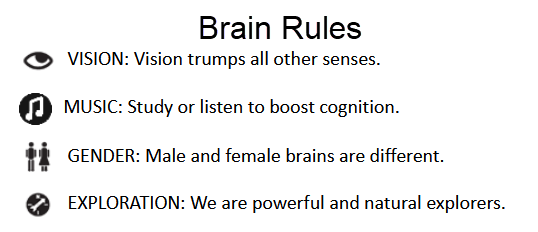
The Daily D is a daily dose of helpful information.The Daily D stands for Daily Direction, Decision, Dose of Wisdom, Dedication, Dose of Special Sauce, (others??). These are suggestions and strategies (often from experts) on topics ranging from the Growth Mindset, brain-based learning, caring for one’s self, and student skills, to caring for others.
The Goal of the Daily D is to help students learn how to be successful and to help those around them to be successful.

This website describes 12 brain rules. There are short videos for teach ‘rule.’
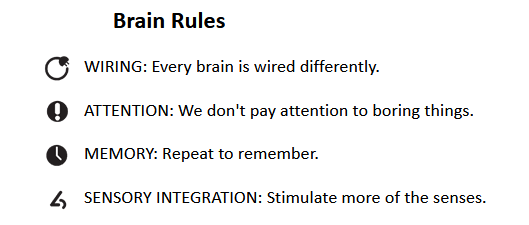
This website describes 12 brain rules. There are short videos for teach ‘rule.’
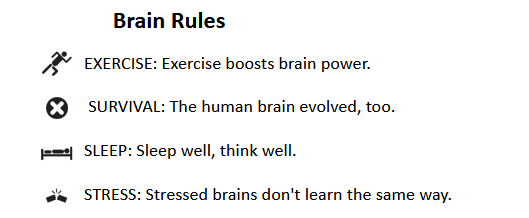
This website describes 12 brain rules. There are short videos for teach ‘rule.’
A Respected MIT Professor Said Your Success Will Be Determined by 3 Things. Here's How to Get Better at Each of Them The quality of your ideas is important. Even more important: being able to communicate those ideas effectively.
The ability to speak.
The ability to write.
The quality of your ideas.
Self talk is important. (See also Day #5 below.) We need to encourage our
students and ourselves to use positive self talk.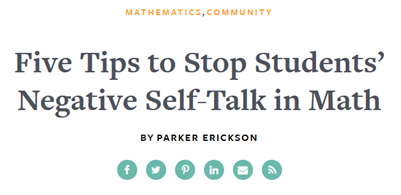
Here are Five Tips to Stop Students’ Negative Self-Talk in Math.
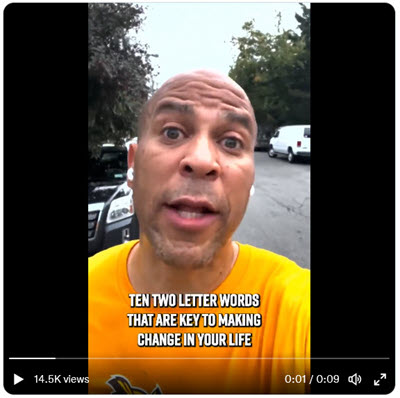
Cory Booker is a US Senator from New Jersey. He often tweets inspirational things.
If is is to be, it is up to me.

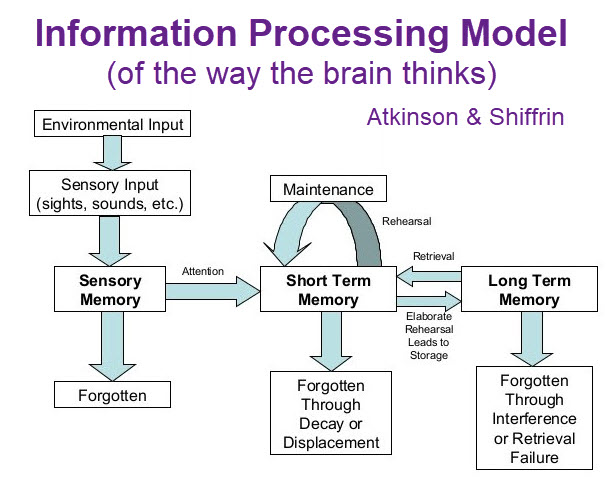
Everything happens in the Short-term memory (sometimes called the working memory).
Short-term memory gets it’s information from the sensory memory and the Long-term memory. The short-term memory is limited in capacity (only can hold 7 ± 2 pieces of information) and limited in duration (“30 seconds” unless maintained).
Long-term memory has an unlimited amount of space and is long-lasting, if the pieces are connected.
Understanding and awareness can help our own mental health and help us help
the mental health of those around us.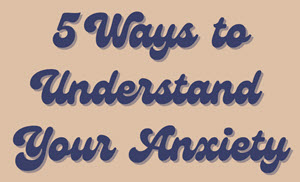
Mental health Screening tools >>> Here.
Below are links with information surrounding specific mental health challenges and resources to combat them.
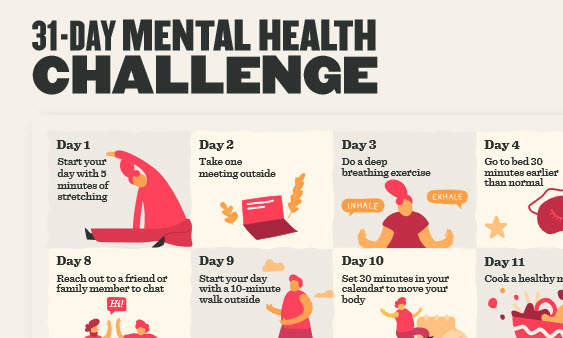
Each October is depression and mental health awareness month.
Here is a 31 day Mental Health Challenge Calendar - please use this as a tool to help encourage your mental health and take time for self-care.
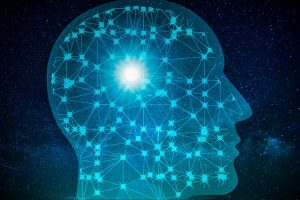
Good understanding (relational understanding) of a concept means the concept has many connections, in the brain, to other concepts. We build this connections by reflecting on what we have learned and done.
Reflective thinking, is a part of critical thinking, referring specifically to the processes of analyzing and making judgments about what has happened. Dewey suggests that reflective thinking is an active, persistent, and careful consideration of a belief or supposed form of knowledge, of the grounds that support that knowledge (WHY?), and the further conclusions to which that knowledge leads. Learners are aware of and control their learning by actively participating in reflective thinking – assessing what they know, what they need to know, and how they bridge that gap.
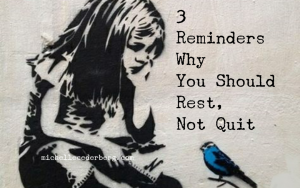
When we’re tired, frustrated, or impatient it’s easier to quit than it is to take a restorative rest. But that’s not how you drive success. Video. Article.

Fresh Check Day is an annual event that serves as a "check-in" with college
students regarding mental health awareness and suicide prevention.
This year's event will be held from 11 a.m.-2 p.m. Thursday, Sept. 22 on the
Multicultural Center lawn.
Food, prizes and giveaways and interactive activities to provide information
about various mental health topics.
Mental health awareness and suicide prevention are something we all need to be aware of - for ourselves and those around us.
LinkedIn article ~
How to
Prepare for Class article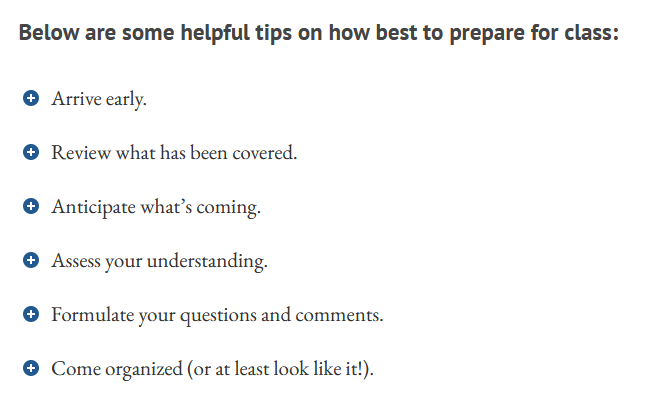
Just like preparing the ground before planting helps growth, preparing to learn improves learning.
A few recommendations for this class:
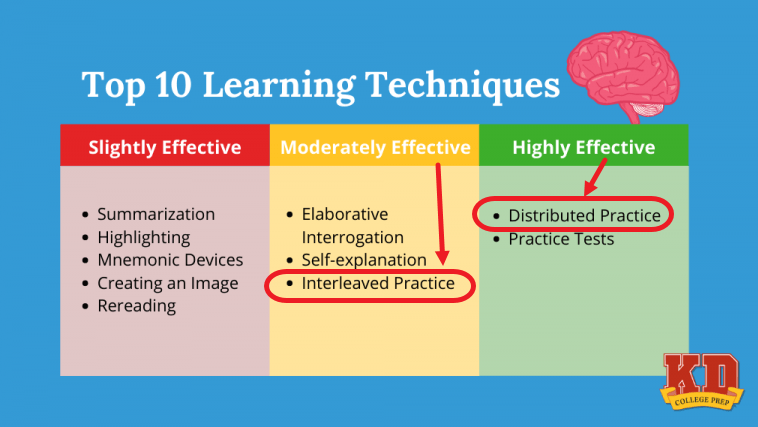
Distributed Practice is spacing out study and homework sessions for material to be learned over time. Research has should that distributed practice increases the amount learned and improves retention. (The opposite of distributed practice is cramming.)
Interleaved Practice is mixed practice. You are learning two or more related concepts or skills, instead of focusing exclusively on one concept or skill at a time. Let’s say you want to learn 3 topics, A, B, and C. Instead of studying AAABBBCCC, it it is better to have interleaved practice which is ABCABCABC. Interleaved sounds like, and is somewhat similar to, “interweaved,” but it is an educational term. Interleaved Practice has been shown to improve understanding and retention.
Interleaved and distributed practice flow naturally.
This is why we make assignments numerous days before they are to be turned in and why you should begin work on the assignments right away and space out work on the homework.
More Information:
Prezi: https://prezi.com/lxwdgidz4mks/distributed-and-interleaved-practice/
3 main benefits of interleaving: https://examstudyexpert.com/interleaving/
Article: https://effectiviology.com/interleaving/
Productive Struggle and the Power of Yet are part of the Growth Mindset.
Productive struggle is the process of effortful learning that develops grit and creative problem solving. Productive struggle is a state of engagement that enables students to work through increasingly challenging problems and new problems they have never seen before.
Here’s a short video from Jo Boaler on productive struggle.
Here’s a
longer
video.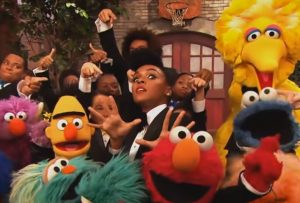
Sesame Street video: Janelle Monae sings about the Power of Yet.
Self talk is important. Rather than saying, “I can’t do this” or “I’m not good at this,” it is better to say, “I’m working at it, but I don’t have it yet.”
http://www.wiu.edu/fye/firstgen.php
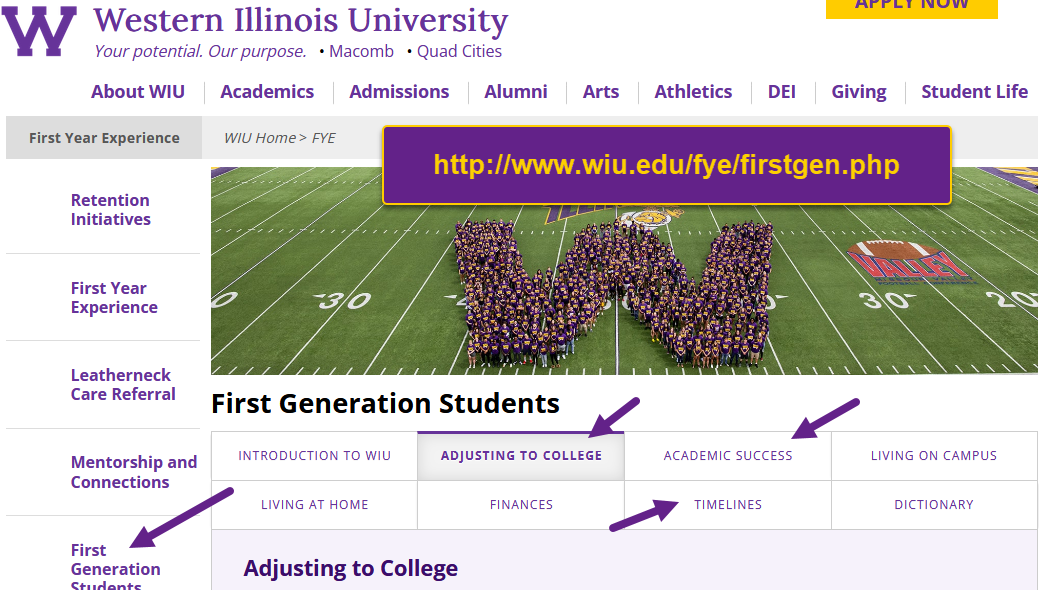
Carol Dweck and Jo Boaler (Stanford University) have done much research on two kinds of mindsets — the fixed mindset and the growth mindset.
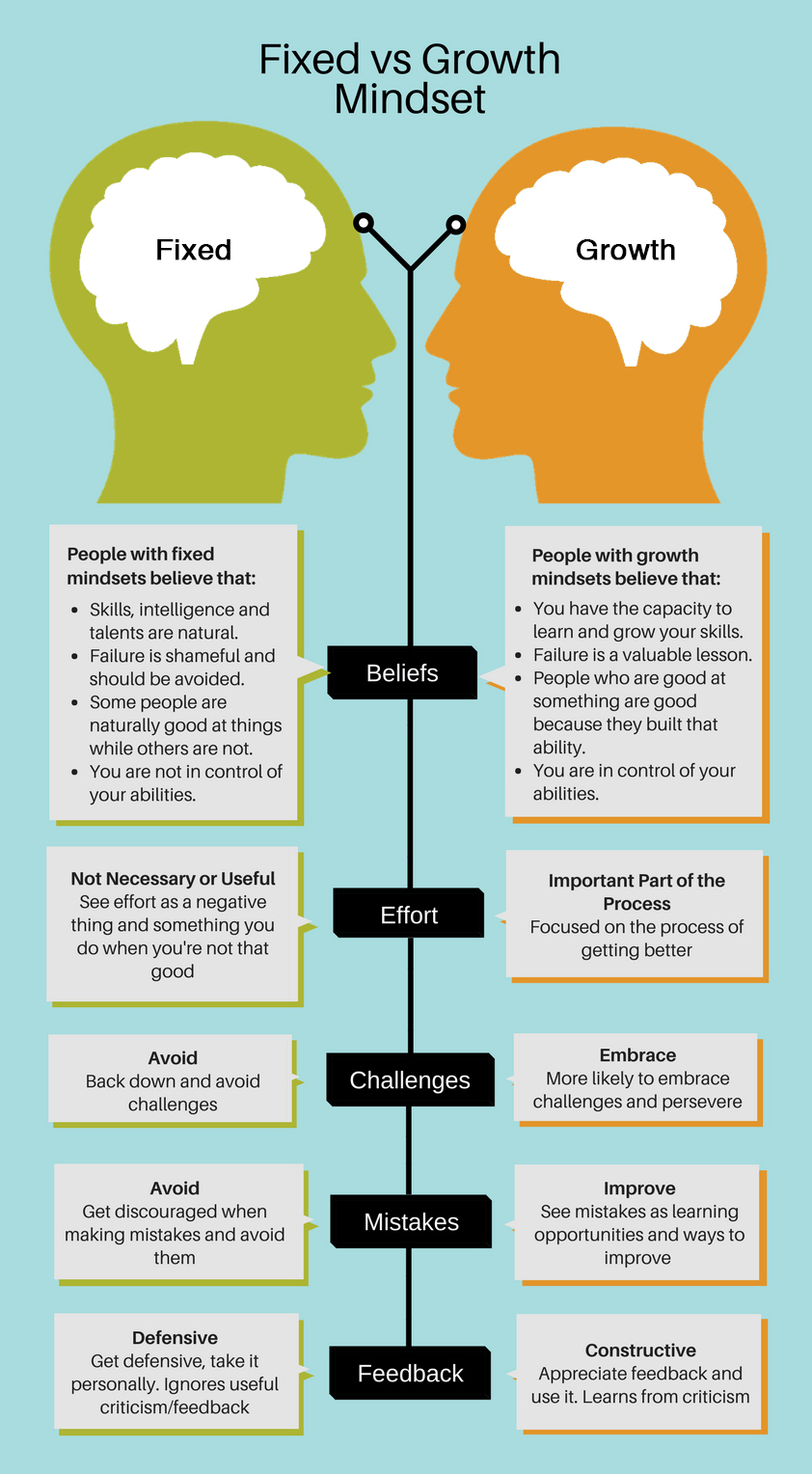
Article here.
Their YouCubed website is for K-12 and college students, showing the power of the Growth Mindset.
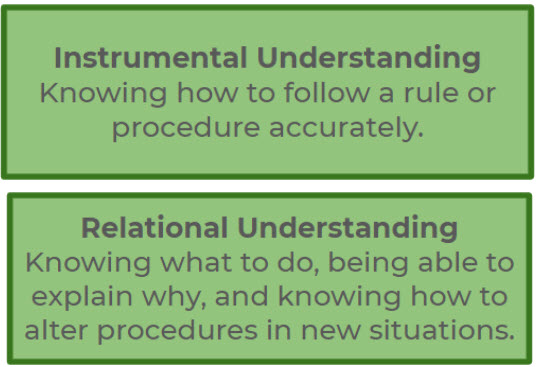
Relational understanding is a well-connected understanding. It has many benefits for students.
Students who are taught relationally and learn relationally are more likely to:
The key is connections in the brain. The concept is connected to many other concepts in the brain.
Excellent article here.
“Instrumental understanding lets you rent the information and relational understanding let you own the information.”
“The truth is,” said the horse, “that no matter how it looks, everyone has their struggles.”
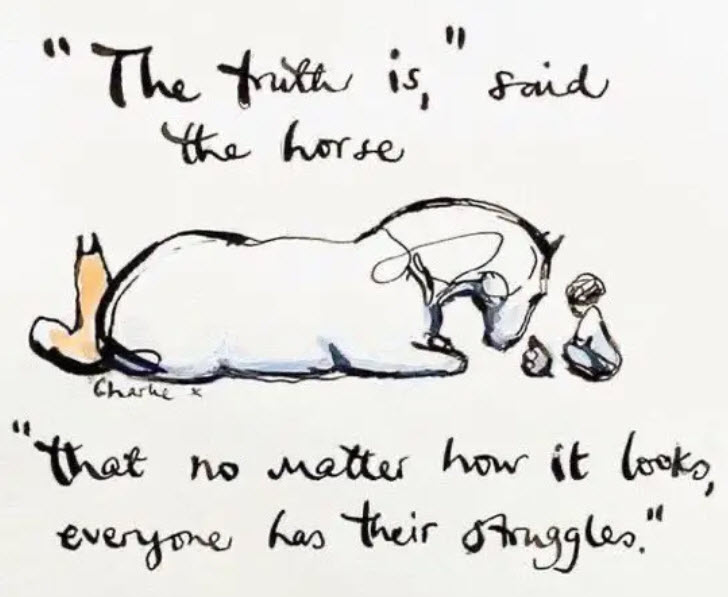
This is from a 2019 book, by Charley Mackesy, titled The Boy, the Mole, the Fox and the Horse. It is a best seller and highly rated.
This page is created by Dr. Jim Olsen.